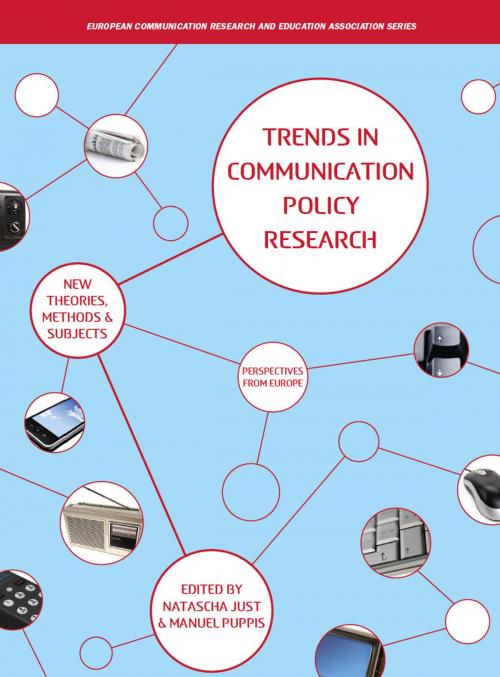Trend in Communication Policy Research
Nonfiction, Reference & Language, Language Arts, Writing & Publishing, Writing Skills, Computers, General Computing, Reference| Author: | ISBN: | 9781841506883 | |
| Publisher: | Intellect Books Ltd | Publication: | July 23, 2012 |
| Imprint: | Intellect | Language: | English |
| Author: | |
| ISBN: | 9781841506883 |
| Publisher: | Intellect Books Ltd |
| Publication: | July 23, 2012 |
| Imprint: | Intellect |
| Language: | English |
Technological, economic and social trends are changing the context of communication policy. Determining the precise beginning of communication policy-making and the attendant idea of researching it systematically is difficult. It is often said to have begun with the emergence of telegraphy, telephony and wireless communication and not with the traditional mass media. Convergence, liberalization, commercialization, new media (e.g. the Internet and mobile communication), audience fragmentation and globalization are only a few of the more notable terms that describe this change. The question of how communication policy copes with these changes is not only of interest to academics but also of the highest societal relevance. Scholars are well aware of current and imminent changes; options for reforming communication policies and regulation are the subject of lively debates in the field. Communication policy research evolved from the outset as a multi-disciplinary field and domain of various academic disciplines from sociology and political science to law and economics, resulting in the coverage of a myriad of multi-faceted topics. The choice of subjects in communication policy research is affected by sociocultural, political, economic and technological forces that determine the overall framework for communication policy and regulation as well as by the many regulatory objectives in communication. Trends in communication policy research comprises the very latest developments in the theories, methods, and practical applications of the dynamic field of communication policy research. It aims to revive and foster such a discussion by offering an overview of and insights into current and future areas of inquiry in this contested policy field. The introductory chapter by Natascha Just and Manuel Puppis (Universität Zürich) looks into the history of communication policy research and its contribution to policy-making. Topical and of high societal and political relevance, this authoritative and up-to-date volume with contributions from leading international experts will prove an invaluable reference for students and scholars seeking to understand future trends in communication policy research.
Technological, economic and social trends are changing the context of communication policy. Determining the precise beginning of communication policy-making and the attendant idea of researching it systematically is difficult. It is often said to have begun with the emergence of telegraphy, telephony and wireless communication and not with the traditional mass media. Convergence, liberalization, commercialization, new media (e.g. the Internet and mobile communication), audience fragmentation and globalization are only a few of the more notable terms that describe this change. The question of how communication policy copes with these changes is not only of interest to academics but also of the highest societal relevance. Scholars are well aware of current and imminent changes; options for reforming communication policies and regulation are the subject of lively debates in the field. Communication policy research evolved from the outset as a multi-disciplinary field and domain of various academic disciplines from sociology and political science to law and economics, resulting in the coverage of a myriad of multi-faceted topics. The choice of subjects in communication policy research is affected by sociocultural, political, economic and technological forces that determine the overall framework for communication policy and regulation as well as by the many regulatory objectives in communication. Trends in communication policy research comprises the very latest developments in the theories, methods, and practical applications of the dynamic field of communication policy research. It aims to revive and foster such a discussion by offering an overview of and insights into current and future areas of inquiry in this contested policy field. The introductory chapter by Natascha Just and Manuel Puppis (Universität Zürich) looks into the history of communication policy research and its contribution to policy-making. Topical and of high societal and political relevance, this authoritative and up-to-date volume with contributions from leading international experts will prove an invaluable reference for students and scholars seeking to understand future trends in communication policy research.















